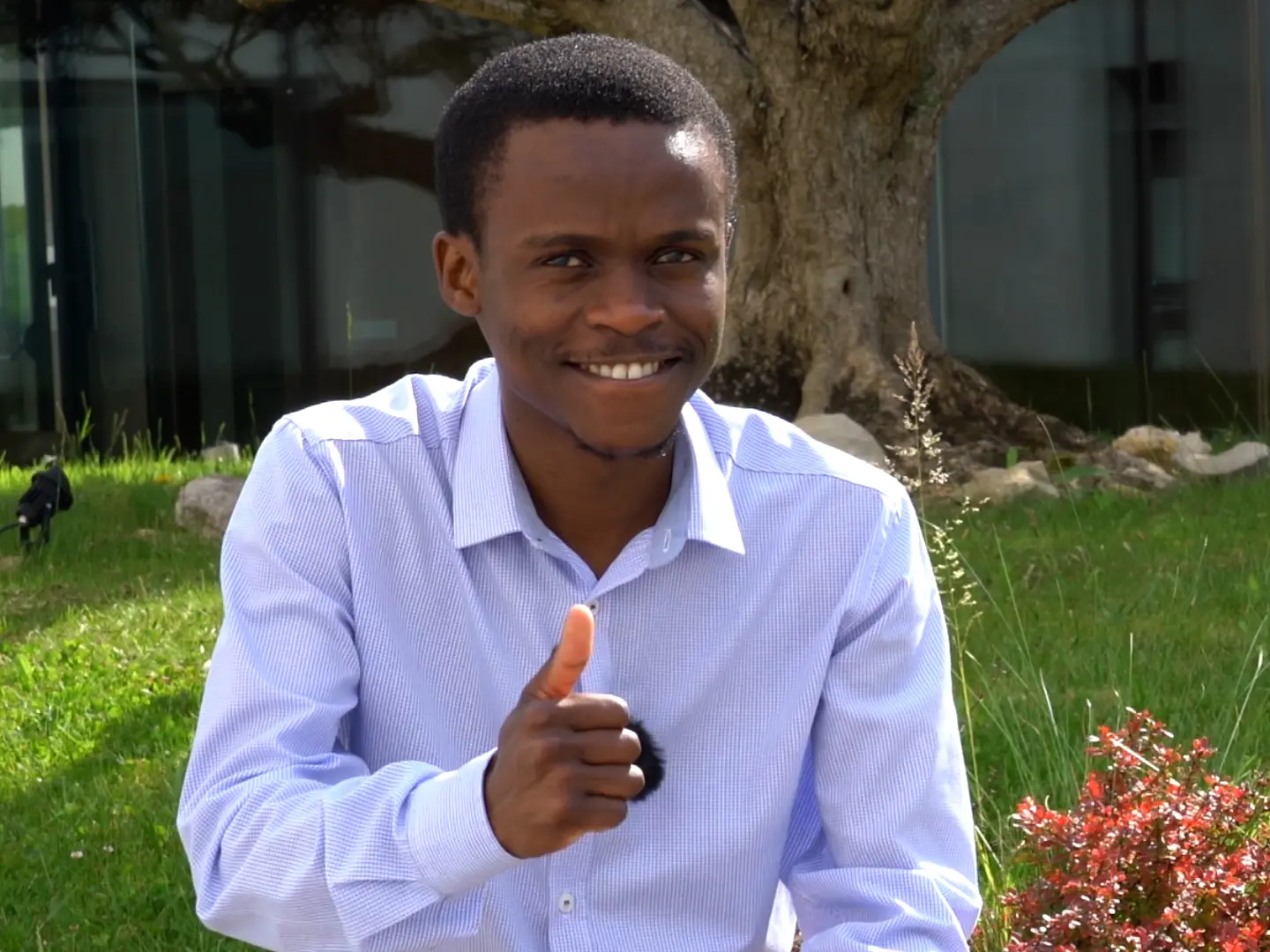
Today we tell you about the vocation as a priest in South Africa of seminarian Sthabiso Zibani, who struggles to renew the faith in his diocese despite the wounds of the past.
He is the fourth of five siblings and the son of two high school economics teachers. His parents formed a family where the Catholic faith first took hold through his mother's side, and was later embraced by his father, years after their marriage.
Seminarian Sthabiso's vocation as a future priest grew in a home with roots well supported by the Gospel and Zulu culture, where life revolved around three pillars: home, school and church.
"Our father was a late convert, but his witness left a deep impression on me. We grew up in a typical Catholic and Zulu family: love and respect for God, for each other and for strangers, whom we considered our neighbors."
His parents encouraged both him and his siblings to explore their talents, and he soon became a restless and curious child: he tried soccer, cricket, debating clubs, choir... And, like any youngster his age, he also experienced a secret love. "A girlfriend my parents never knew about," he confesses with a shy smile. But inside him, from a very young age, there burned a question that he could not silence: the call to become a priest.
"I knew I would not marry the girl I loved deeply. So I released my girlfriend and answered the call. I entrusted myself to Christ to give me the strength to love radically, beyond romantic interests and professional ambitions," he recounts.
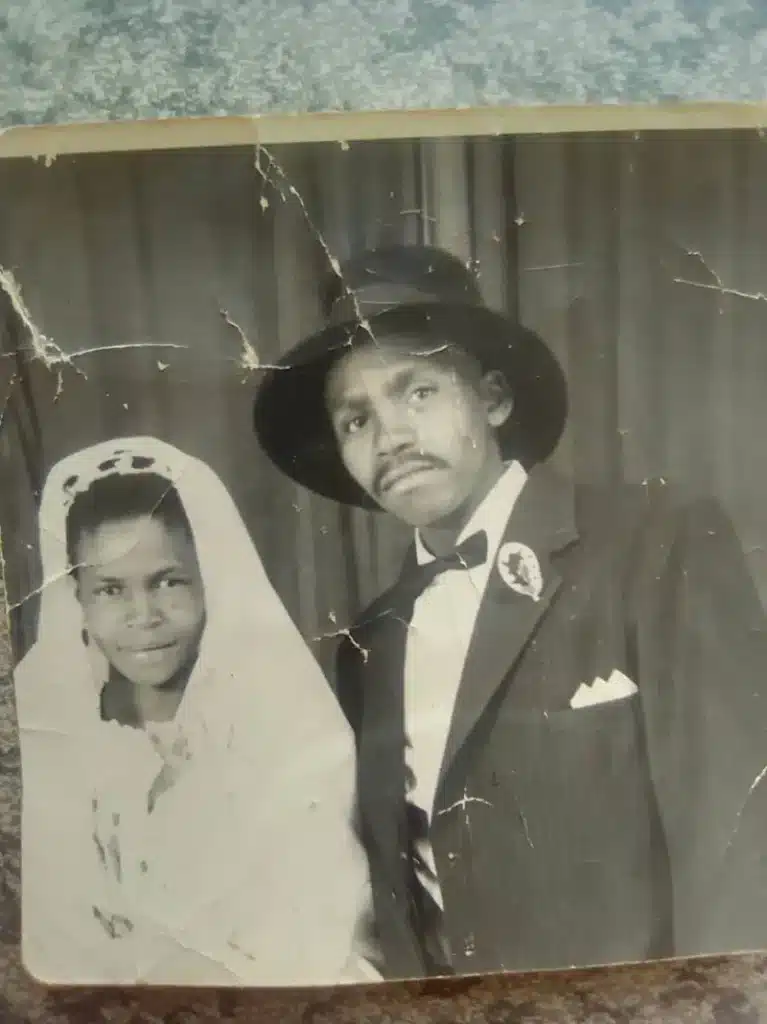
His decision was not an easy one: to respond to his vocation, he left his engineering studies, his comforts and everything he knew, to embrace a path that no one in his family had traveled before.
When speaking about his priestly vocation, Sthabiso lowers his voice a little. He acknowledges that his discernment has been inspired by many people, but primarily by his family, and especially by his father: "In my family I learned and observed the paternal love we received. Many would be surprised to learn that my own father is an inspiration for priestly life. Although he is not a priest, I see in him the priestly virtue of self-sacrifice, even now, at the dawn of old age".
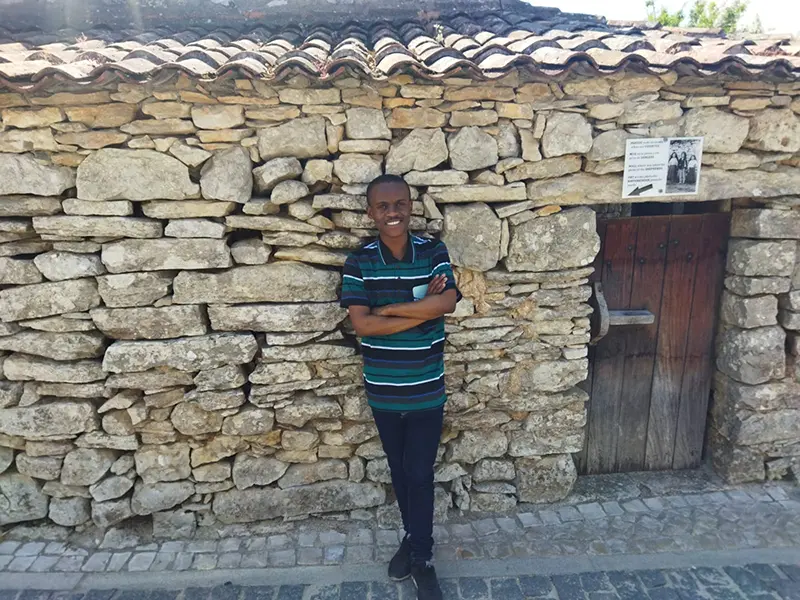
After his father, it was his parish priests who helped him discover God's will in his life. But, above all, Christ: "The Good Shepherd sees the lame sheep that I am and comes for me. He picks me up and carries me on his shoulders. It is because of him that I want to be a priest: so that more lame sheep may find refuge on those same shoulders".
The Diocese of Eshowe accepted his application and has accompanied him ever since. He spent a year at St. Ambrose House of Formation for aspirants in the Archdiocese of Durban and another year at St. Francis Xavier Orientation Seminary.
After this period of training in South Africa, Sthabiso was admitted to the Bidasoa international seminar (Pamplona), where today he continues his adventure towards the priesthood, walking with a serene and constant step.
The cultural contrast has been enormous, and the Spanish language is still hard for him: "during classes and homilies, sometimes I get lost. But I owe it to God that I made it this far," he says, without a hint of complaint.
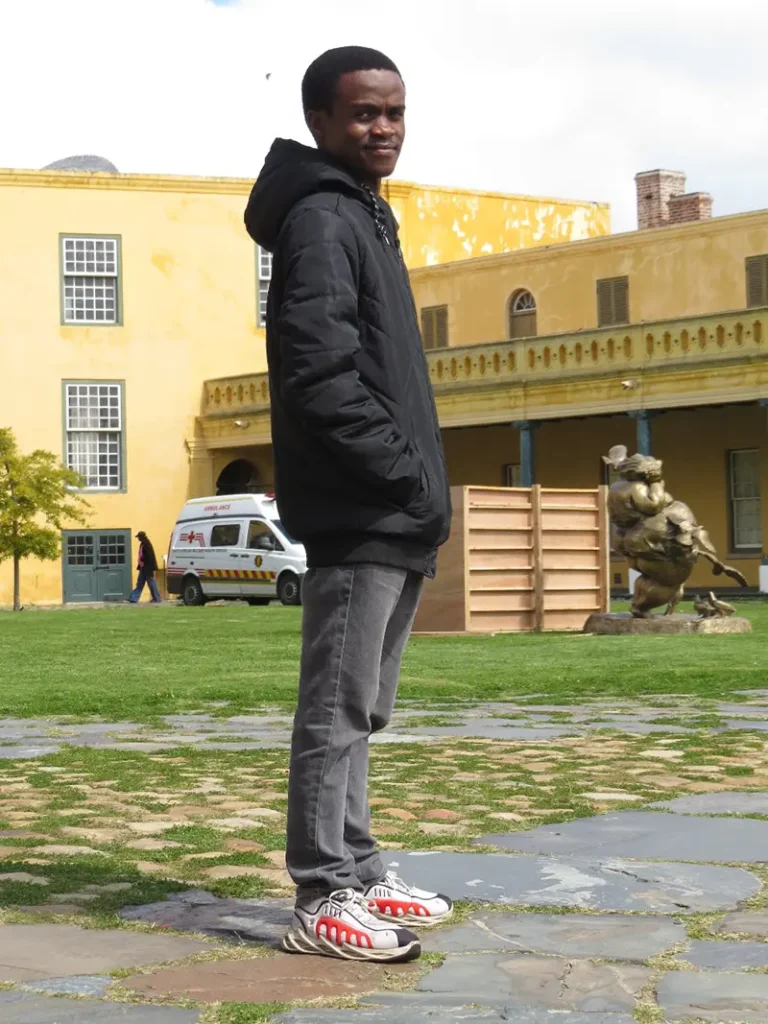
The Diocese of Eshowe is home to approximately 2.8 % of the region's population. Founded in 1921, it experienced a steady growth in Catholic faithful until the 1980s, when the numbers began to decline.
"There are many factors that contribute to this. The most important, I suppose, being the political instability of that time, the stench of which still lingers in today's society."
With the serenity with which he observes his country from a distance, Sthabiso does not hide the pain he feels about the current situation of the Church in South Africa. Today, Christianity is going through a profound identity crisis: colonialism left open wounds, and the Catholic Church is perceived by some as part of that past.
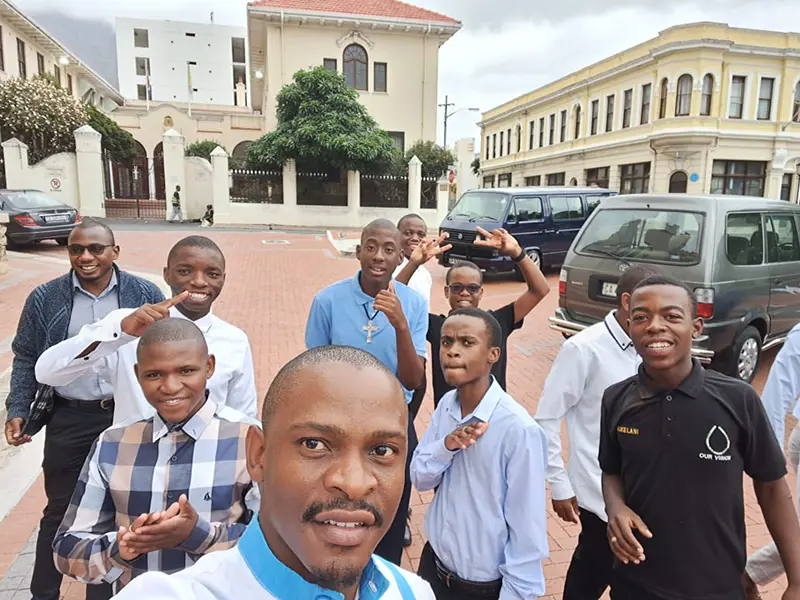
"Most people feel that colonialism robbed them of their identity and, as a result, they blame the Catholic Church and other Christian denominations. This has given rise to a strong presence of identity and cultural politics that intentionally exclude God and the Church," he recounts with regret, but without losing hope.
Added to this is the influence of Western mysticism, mixed with ancestral African religions, and a deep economic crisis caused, in part, by political corruption. All this pushes many to work even on Sundays, leaving community life behind.
"A good lesson we could learn from Europe is respect for historic religious sites... Our old churches are deteriorating. Alas, if people no longer go to church, the temples will fall into oblivion... little by little," he laments.
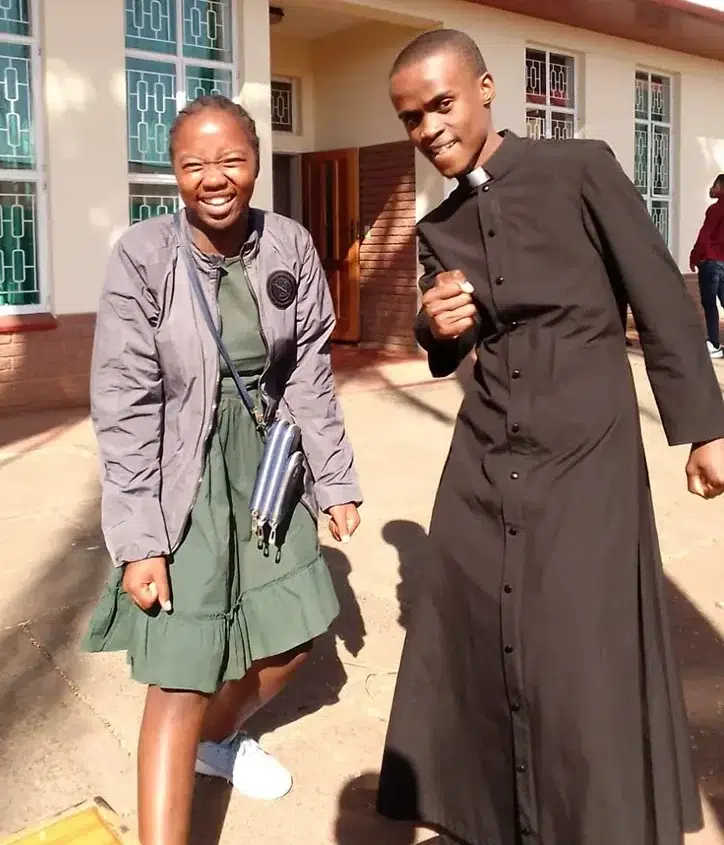
However, there is one spark of hope that burns brightly: the youth. "The most lively part of the Church in South Africa is undoubtedly the youth," he says with conviction.
Far from being swept along by the ideologies of the world, many young people are looking for deep reasons to believe, to live and to hope.
"It is precisely because of the identity crisis that young people are investigating thoroughly. And even though many are barely making ends meet, they still have hope that God will give them a solution."
Most of the Catholic faithful in his country, especially the young, live modestly, both in the way they present themselves to the world and in their liturgies. For this young South African seminarian, the future of the Church is based on authenticity: simplicity, truth and fidelity.
Today, in a language he is still learning and in a culture very different from his own, Sthabiso is taking silent but firm steps towards ordination. He has been in Spain for barely a year and will soon begin his second year of the Bachelor of Theology.
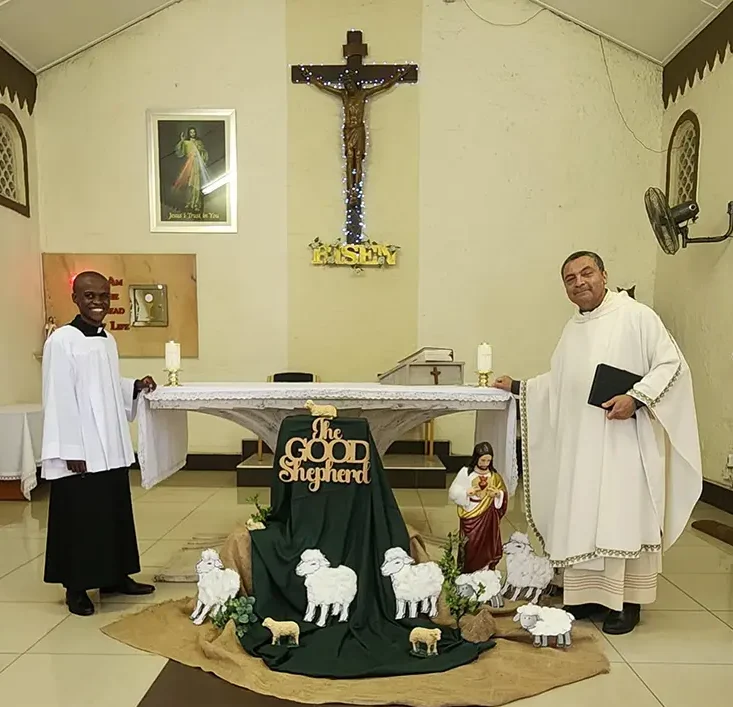
His longing is to return one day, as a priest, to the wounded heart of his native land. That is why every class, every prayer, every effort has a clear addressee: the men and women of his beloved Eshowe, thirsty for an authentic faith. "I thank God for my vocation and I desire with all my heart to respond with all my love to this call."
For, in the end, the shepherd's heart is measured by the wounded sheep he hopes to meet and embrace with the very love of Christ.
Marta Santín, journalist specializing in religion.